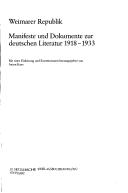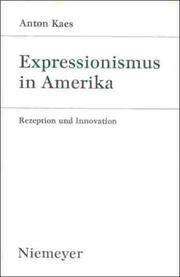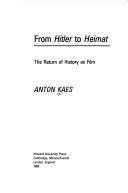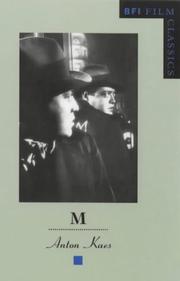| Listing 1 - 10 of 38 | << page >> |
Sort by
|

ISBN: 3476004147 3476004139 9783476004130 9783476004147 Year: 1983 Publisher: Stuttgart : J.B. Metzler Verlag,
Abstract | Keywords | Export | Availability | Bookmark
 Loading...
Loading...Choose an application
- Reference Manager
- EndNote
- RefWorks (Direct export to RefWorks)
German literature --- anno 1920-1929 --- Authors, German --- Littérature allemande --- Ecrivains allemands --- History and criticism --- Political and social views --- Histoire et critique --- Pensée politique et sociale --- Germany --- Allemagne --- Politics and government --- Politique et gouvernement --- Political and social views. --- History and criticism. --- Littérature allemande --- Pensée politique et sociale --- German literature - 20th century - History and criticism --- Authors, German - 20th century - Political and social views --- Germany - Politics and government - 1918-1933 --- Vie intellectuelle --- Litterature allemande --- 1910-1933 --- 20e siecle

ISBN: 3484180382 Year: 1975 Publisher: Tübingen
Abstract | Keywords | Export | Availability | Bookmark
 Loading...
Loading...Choose an application
- Reference Manager
- EndNote
- RefWorks (Direct export to RefWorks)
Comparative literature --- German language --- anno 1900-1999 --- United States --- American drama --- Expressionism in literature. --- German drama --- German influences. --- History and criticism. --- Appreciation --- History and criticism --- United States of America

ISBN: 0674324552 0674324560 Year: 1992 Publisher: Cambridge (Mass.) Harvard university press
Abstract | Keywords | Export | Availability | Bookmark
 Loading...
Loading...Choose an application
- Reference Manager
- EndNote
- RefWorks (Direct export to RefWorks)
Film --- Germany --- Motion picture plays, German --- Motion picture producers and directors --- Motion pictures and history --- Motion pictures --- History and motion pictures --- Moving-pictures and history --- History --- Directors, Motion picture --- Film directors --- Film producers --- Filmmakers --- Motion picture directors --- Moviemakers --- Moving-picture producers and directors --- Producers, Motion picture --- German motion picture plays --- German drama --- History and criticism --- Persons
Book
ISBN: 3883772607 Year: 1987 Publisher: München Text + Kritik
Abstract | Keywords | Export | Availability | Bookmark
 Loading...
Loading...Choose an application
- Reference Manager
- EndNote
- RefWorks (Direct export to RefWorks)
791.43-024 --- Motion picture plays --- -Motion picture producers and directors --- -Motion pictures --- -Motion pictures and history --- #SBIB:309H1328 --- History and motion pictures --- Moving-pictures and history --- History --- Cinema --- Feature films --- Films --- Movies --- Moving-pictures --- Audio-visual materials --- Mass media --- Performing arts --- Directors, Motion picture --- Film directors --- Film producers --- Filmmakers --- Motion picture directors --- Moviemakers --- Moving-picture producers and directors --- Producers, Motion picture --- Film plays --- Film scripts --- Filmscripts --- Motion picture scripts --- Moving-picture plays --- Photoplays --- Scenarios --- Screen plays --- Screenplays --- Scripts (Motion pictures) --- Drama --- Filmkunst. Films. Cinema--?-024 --- History and criticism --- Films met een ideologische en spiegelfunctie --- Motion picture plays, German --- Motion picture producers and directors --- Motion pictures and history. --- Motion pictures --- History and criticism. --- History. --- 791.43-024 Filmkunst. Films. Cinema--?-024 --- Motion pictures and history --- German motion picture plays --- German drama --- Persons
Book
ISBN: 9780851703701 Year: 2008 Publisher: London BFI
Abstract | Keywords | Export | Availability | Bookmark
 Loading...
Loading...Choose an application
- Reference Manager
- EndNote
- RefWorks (Direct export to RefWorks)

ISBN: 0851703704 Year: 2001 Publisher: London BFI
Abstract | Keywords | Export | Availability | Bookmark
 Loading...
Loading...Choose an application
- Reference Manager
- EndNote
- RefWorks (Direct export to RefWorks)
Anton Kaes --- film --- filmklassiekers --- filmgeschiedenis --- Lang Fritz --- 791.471 LANG --- #SBIB:309H1321 --- Films met een amusementsfunctie en/of esthetische functie: algemeen --- #SBIB:309H1327 --- #SBIB:309H520 --- Films met een amusementsfunctie en/of esthetische functie: script --- Audiovisuele communicatie: algemene werken --- M (Motion picture)
Book
Year: 1975 Publisher: Tübingen : Max Niemeyer,
Abstract | Keywords | Export | Availability | Bookmark
 Loading...
Loading...Choose an application
- Reference Manager
- EndNote
- RefWorks (Direct export to RefWorks)
Book
ISBN: 9781839022913 Year: 2021 Publisher: London Bloomsbury on behalf of the British Film Institute
Abstract | Keywords | Export | Availability | Bookmark
 Loading...
Loading...Choose an application
- Reference Manager
- EndNote
- RefWorks (Direct export to RefWorks)
Fritz Lang's 'M' (1931) is an undisputed classic of world cinema. Lang considered it his most lasting work. Peter Lorre's extraordinary performance as the childlike misfit Hans Beckert was one of the most striking of film debuts, and it made him an international star. Lang's vision of a city gripped with fear, haunted by surveillance and total mobillization, is still remarkably powerful today. And 'M' resonates too in the serial-killer genre which is so prominent in contemporary cinema. 'M' speaks to us as a timeless classic, but also as a Weimar film that has too often been isolated from its political and cultural context. In this groundbreaking book, Anton Kaes reconnects 'M''s much-studied formal brilliance to its significance as an event in 1931 Germany, recapturing the film's extraordinary social and symbolic energy. Interweaving close reading with cultural history, Kaes reconstitutes 'M' as a crucial modernist artwork. In addition he analyzes Joseph Losey's 1951 film noir remake and, in an appendix, publishes for the first time 'M''s missing scene. (Provided by publisher)
Book
ISBN: 1282303880 9786612303883 1400831199 Year: 2009 Publisher: Princeton, NJ : Princeton University Press,
Abstract | Keywords | Export | Availability | Bookmark
 Loading...
Loading...Choose an application
- Reference Manager
- EndNote
- RefWorks (Direct export to RefWorks)
Shell Shock Cinema explores how the classical German cinema of the Weimar Republic was haunted by the horrors of World War I and the the devastating effects of the nation's defeat. In this exciting new book, Anton Kaes argues that masterworks such as The Cabinet of Dr. Caligari, Nosferatu, The Nibelungen, and Metropolis, even though they do not depict battle scenes or soldiers in combat, engaged the war and registered its tragic aftermath. These films reveal a wounded nation in post-traumatic shock, reeling from a devastating defeat that it never officially acknowledged, let alone accepted. Kaes uses the term "shell shock"--coined during World War I to describe soldiers suffering from nervous breakdowns--as a metaphor for the psychological wounds that found expression in Weimar cinema. Directors like Robert Wiene, F. W. Murnau, and Fritz Lang portrayed paranoia, panic, and fear of invasion in films peopled with serial killers, mad scientists, and troubled young men. Combining original close textual analysis with extensive archival research, Kaes shows how this post-traumatic cinema of shell shock transformed extreme psychological states into visual expression; how it pushed the limits of cinematic representation with its fragmented story lines, distorted perspectives, and stark lighting; and how it helped create a modernist film language that anticipated film noir and remains incredibly influential today. A compelling contribution to the cultural history of trauma, Shell Shock Cinema exposes how German film gave expression to the loss and acute grief that lay behind Weimar's sleek façade.
Culture in motion pictures. --- Psychic trauma in motion pictures. --- Silent films --- World War, 1914-1918 --- Motion pictures --- History and criticism. --- Influence. --- Motion pictures and the war. --- History
Book
Year: 1978 Publisher: Tübingen Niemeyer
Abstract | Keywords | Export | Availability | Bookmark
 Loading...
Loading...Choose an application
- Reference Manager
- EndNote
- RefWorks (Direct export to RefWorks)
| Listing 1 - 10 of 38 | << page >> |
Sort by
|

 Search
Search Feedback
Feedback About
About Help
Help News
News